Key Faculty Publications
Our department is home to faculty that have contributed prolific works to the field in addition to their exceptional professorship.
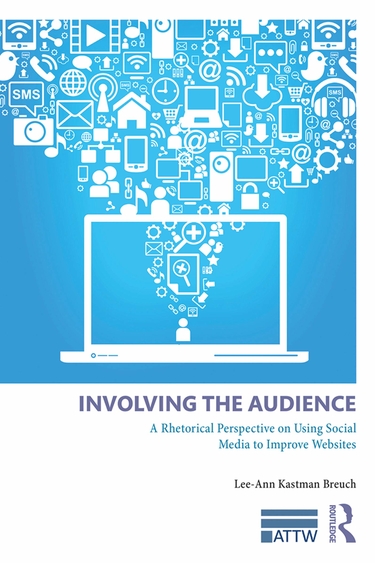
Lee-Ann Kastman Breuch
Lee-Ann Kastman Breuch’s book Involving the Audience: A Rhetorical Perspective on Using Social Media to Improve Websites explores the ways social media has become intertwined with website usability. Involving the Audience describes two case studies in which organizations actively engaged with audiences through social media to improve the usability of their websites. In describing "social web usability," Breuch explores models of audience involvement, and she outlines the model "audience initiated" to explain how audiences can start web usability conversations with organizations in true dialogic fashion.
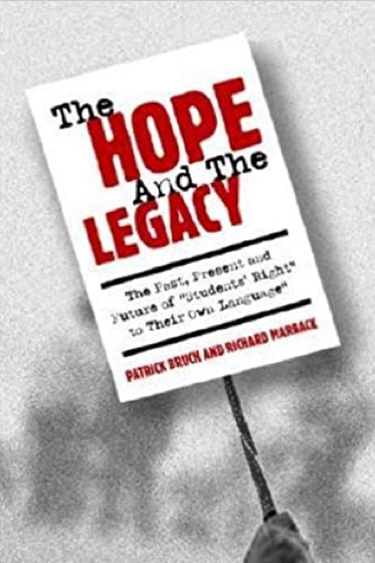
Patrick Bruch and Richard Marback, Eds.
This book engages the formative influence on composition studies of the landmark 1974 "Students' Right" to Their Own Language resolution. Combining elements of documentary history and a collection of original scholarship, this book enables current professional hopes for the teaching of writing to be invigorated and informed by the lessons available within the legacy of debate over issues raised by "Students' Right." These include issues of racial identity and language diversity, social justice and literacy education, language politics and teacher attitudes, and classroom practices and the purposes of schooling in a pluralistic democracy. As a collection, it provides a resource for historically contextualized and theoretically informed engagements with the central tensions facing teachers, students, and scholars in the field. Taken together the essays track the impact of the "Students' Right"resolution through the past and into the future, enriching discussions of how research and practice in composition studies can best address issues of racial identity, writing instruction, and the purpose of schooling. [More information on the book The Hope and the Legacy.]

Dan Card
Dan Card contributed a chapter, "Boundary Waters: Deliberative Experience Design for Environmental Decision Making," to the forthcoming edited collection Technical Communication for Environmental Action.
Climate change is one of the most significant challenges facing the global community in the twenty-first century. With its position at the border of people, technology, science, and communication, technical communication has a significant role to play in helping to solve these complex environmental problems. This collection of essays engages scholars and practitioners in a conversation about how the field has contributed to pragmatic and democratic action to address climate change. Compared to most prior work—which offers theoretical perspectives of environmental communication—this collection explores the actual practice of international technical communicators who participate in government projects, corporate processes, nonprofit programs, and international agency work, demonstrating how technical communication theories such as participatory design, social justice, and ethics can help shape pragmatic environmental action.
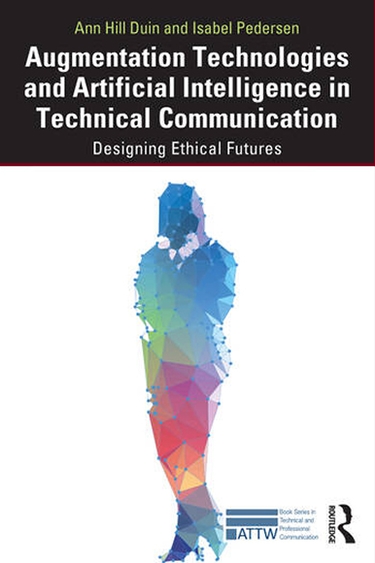
Ann Hill Duin, Isabel Pedersen
This book enables readers to interrogate the technical, rhetorical, theoretical, and socio-ethical challenges and opportunities involved in the development and adoption of augmentation technologies and artificial intelligence.
The core of our human experience and identity is forever affected by the rise of augmentation technologies that enhance human capability or productivity. These technologies can add cognitive, physical, sensory, and emotional enhancements to the body or environment. This book demonstrates the benefits, risks, and relevance of emerging augmentation technologies such as brain–computer interaction devices for cognitive enhancement; robots marketed to improve human social interaction; wearables that extend human senses, augment creative abilities, or overcome physical limitations; implantables that amplify intelligence or memory; and devices or algorithms for emotional augmentation. It allows scholars and professionals to understand the impact of these technologies, improve digital and AI literacy, and practice new methods for their design and adoption.
This book will be vital reading for students, scholars, and professionals in fields including technical communication, UX design, computer science, human factors, information technology, sociology of technology, and ethics.
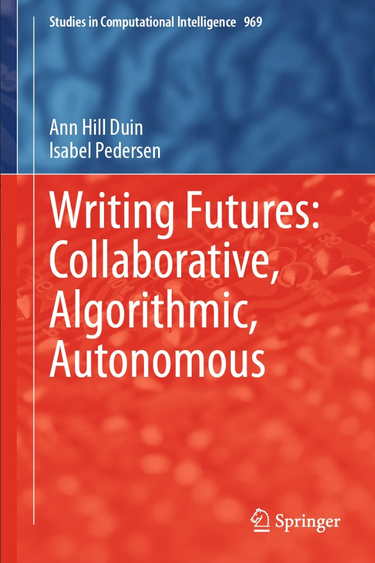
Ann Hill Duin, Isabel Pedersen
The rise in the use of non-human agents and Artificial Intelligence (AI) is disrupting all fields and professions. One of the greatest challenges facing professional and technical communication scholars and instructors is a reticence to prepare for writing futures in advance of these major technological transformations.
Writing Futures provides a future-driven framework for investigating and planning for the social, digital literacy, and civic implications of collaborative, algorithmic, and autonomous writing futures. Use of this book by scholars and practitioners across a broad range of disciplines and organizations provides opportunities to understand and write alongside non-human agents, examine the impact of algorithms and AI on writing, accommodate the unique relationships with autonomous agents, and investigate and plan for writing futures.
Unique to this book is its integration with Fabric of Digital Life, a database and structured content repository for conducting social and cultural analysis of emerging technologies and the social practices that surround them. It includes concrete examples of the social, digital literacy, and civic implications of specific technologies so that readers can examine these technologies within key contexts that are constantly evolving.
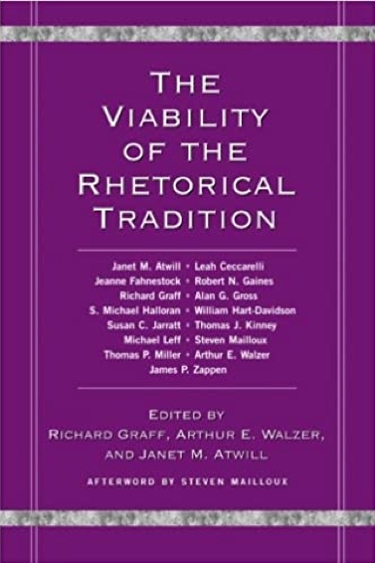
Richard Graff, Arthur E. Walzer, Steven Mailloux, and Janet M. Atwill, Eds.
Interrogates the story of rhetoric promoted in standard historical accounts and reconsiders the relationship between rhetorical theory, practice, and pedagogy. The Viability of the Rhetorical Tradition reconsiders the relationship between rhetorical theory, practice, and pedagogy. Continuing the line of questioning begun in the 1980s, contributors examine the duality of a rhetorical canon in determining if past practice can make us more (or less) able to address contemporary concerns. Also examined is the role of tradition as a limiting or inspiring force, rhetoric as a discipline, rhetoric's contribution to interest in civic education and citizenship, and the possibilities digital media offer to scholars of rhetoric. [More information on the book The Viability Of The Rhetorical Tradition.]
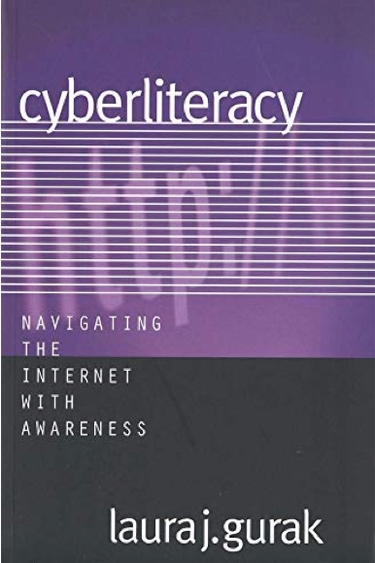
Laura Gurak
The Internet has changed our social spaces, our political and social realities, our use of language, and the way we communicate, all with breathtaking speed. Almost everyone who deals with the Internet and the new world of cyberspace communication at times feels bewildered, dismayed, or even infuriated. In this clear and helpful book, computer communications scholar Laura J. Gurak takes a close look at the critical issues of online communication and discusses how to become literate in the new mass medium of our era. [More information on the book]
Received Honorable Mention for the 2002 Educator’s Award given by the Delta Kappa Gamma Society International
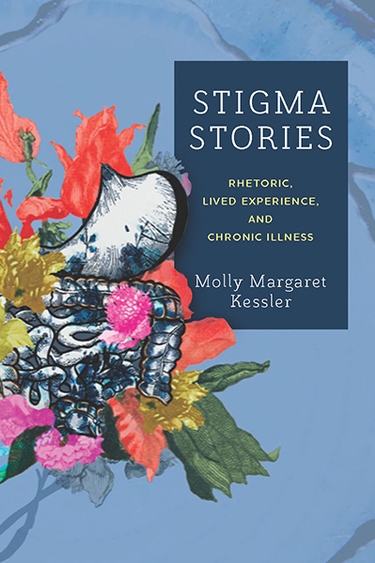
Molly Margaret Kessler
In Stigma Stories: Rhetoric, Lived Experience, and Chronic Illness, Molly Margaret Kessler focuses on ostomies and gastrointestinal conditions to show how stigma is nearly as central to living with chronic conditions as the conditions themselves. Drawing on a multi-year study that includes participant observations, interviews, and rhetorical engagement with public health campaigns, blogs, social media posts, and news articles, Stigma Stories advocates for a rhetorical praxiographic approach that is attuned to the rhetorical processes, experiences, and practices in which stigma is enacted or countered.
Engaging interdisciplinary conversations from the rhetoric of health and medicine, disability studies, narrative medicine, and sociology, Kessler takes an innovative look at how stigma functions on individual, interpersonal, and societal levels. In doing so, Kessler reveals how stories and lived experiences have much to teach us not only about how stigma functions but also about how it can be dismantled.
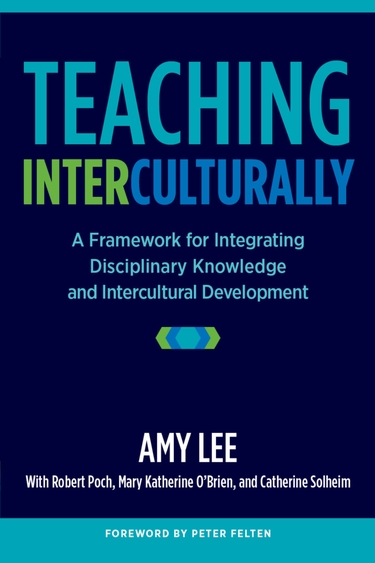
Amy Lee
This book provides faculty and instructors with a theoretical foundation, practical tools, and an iterative and reflective process for designing and implementing an intercultural pedagogy. The authors bring to bear the expertise of their various disciplinary backgrounds to offer a responsive, integrative framework to develop and continually refine a pedagogy that both promotes deep disciplinary learning and supports intercultural outcomes for all students.
The authors offer a framework that is flexible enough to be responsive to the experience, environment, and particulars of a given teaching and learning situation. The text incorporates narrative text by the authors, as well as first-person reflections, classroom activities, and annotated assignments that illustrate the dynamic process of intention, experiment/implement, critique, and refinement that characterize pedagogy and intercultural interaction. [More information on Teaching Interculturally.]
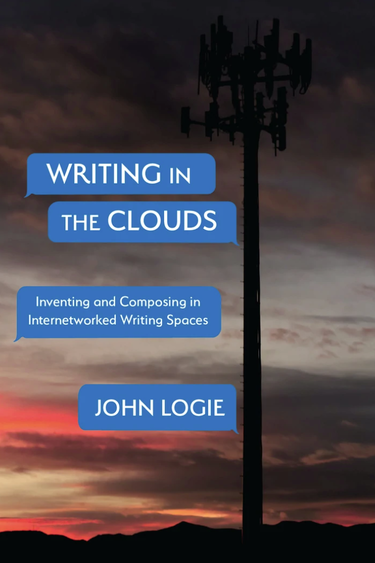
John Logie
Writing in the Clouds is an intensive examination of the profound consequences of contemporary writing technologies for the act—and art—of composition. In the 1980s and 1990s, the increasing adoption of computers as digital composing tools prompted scholars to re-examine the roles technology might play in written composition. This book elaborates those consequences at a time when internetworked writing has supplanted digital composition. Our centuries-long relationship with paper as the default space for certain types of written composition has been thrown into question. The advent of ebooks and their sharply spiking popularity is one indication of the ongoing technological and cultural shift. Perhaps more important is the relative affordability of tablet computers and their increasingly widespread acceptance and use in roles that formerly required paper-based writing. For years, the notion of the paperless office has been an ironic joke. Paper consumption soared after the adoption of desktop computers. Now portable and tablet computing appear to be contributing to a dramatic decline in US per capita paper consumption. Today’s writers are increasingly aware of the likelihood that their compositions may never be printed. When they are certain that their works are being developed for digital delivery, they cannily adapt their writing to exploit the affordances of internetworked digital spaces. Writing in the Clouds offers history, analysis, and a set of keywords to help readers better understand these changes in their particularity and help them prepare for what’s next as writers embrace the expansive opportunities of cloud-based writing spaces. [More information on the book Writing in the Clouds.]
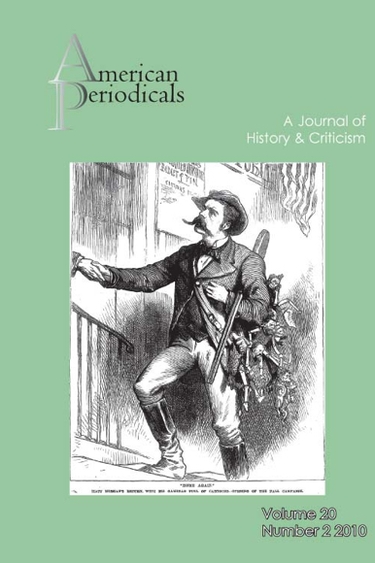
Thomas Reynolds
The article focuses on periodicals related to college literacy in the early twentieth century. Representations of the modern college–in fiction, non-fiction, editorials, and advertisements–as a place and an experience receptive to middle class youth, in particular, contributed to a normalization of college as a literacy pathway for many who wished to advance economically and socially. Particularly the periodical "The Saturday Evening Post," promoted colleges as modern institutions fit to train young people, especially young men, for success and advancement in society. Despite suspicions voiced by cultural and academic elites, magazines provided significant outlets for literate skills that students gained in school. Developments in the magazine industry at the turn into the 20th century greatly increased the amount and kinds of texts available to young people. Despite their poor reputation for some cultural elites, magazines often played an "extracurricular" supportive role to the literacy work of high school and college English classes. [Read the journal article "Selling College Literacy."]